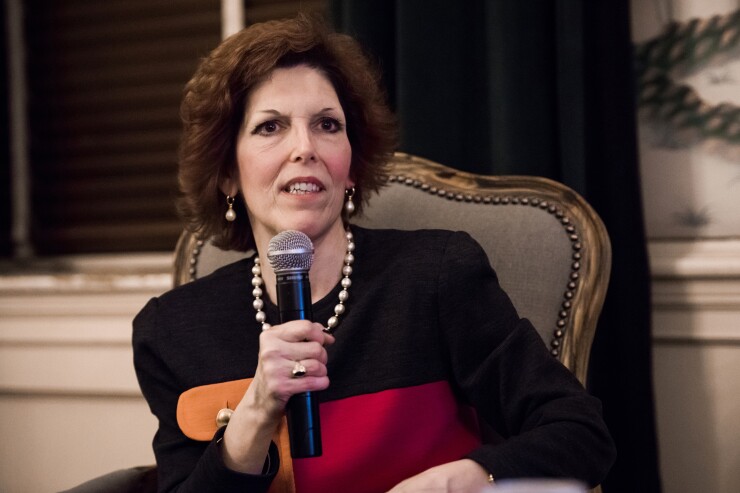Fed’s Mester sees inflation risks to upside despite better data
2 min read

Federal Reserve Bank of Cleveland President Loretta Mester said she still sees inflation risks as tilted to the upside despite welcome news in the latest data.
Mester, speaking in print and television interviews Friday at Bloomberg’s New York office, also said the median projection of policymakers’ latest forecasts — which signaled just one interest-rate cut this year — is “pretty close” to her own outlook for the economy.
Bloomberg News
“I think the risks to inflation are still on the upside,” Mester said. “I think the risk to the labor market is dual-sided.”
The Cleveland Fed chief called softer-than-expected inflation figures out earlier this week a “great gift,” but added she’d like to see a few additional similar reports before lowering rates. The consumer price index excluding food and energy climbed 0.2% in May, and 3.4% from a year earlier, the slowest pace in more than three years.
“We’ve made pretty good progress on inflation in the last two years. It’s still too high,” Mester said. “There’s more to do on inflation to gain confidence that it is on that downward trajectory to 2%.”
Fed officials at their latest policy meeting this week dialed back expectations for how much they plan to ease this year, penciling in only one rate reduction, according to their median projection. At the meeting, they unanimously agreed to leave their benchmark rate steady in a target range of 5.25% to 5.5%, a two-decade high first reached in July.
Mester said she did not update her projections following the release of the CPI data, which were published on the second day of the two-day policy meeting.
“Given all the progress we’ve made on inflation, I think we do need to see a few more data points that really tell us, ‘OK, we now can be pretty confident inflation is on that downward path, and therefore we can start reducing the restrictiveness,'” she said.
The outgoing Cleveland Fed chief also said she penciled in 3% as her latest projection for where interest rates will settle in the longer term. Policymakers marked up their expectations for that rate to 2.8% in June, following a slight bump in March, according to their median estimate, hinting they don’t expect rates to return to pre-pandemic levels.
Mester will step down at the end of the month after a decade in the role. She will be replaced by Beth Hammack, a Goldman Sachs Group Inc. veteran, who will take the helm in August.







